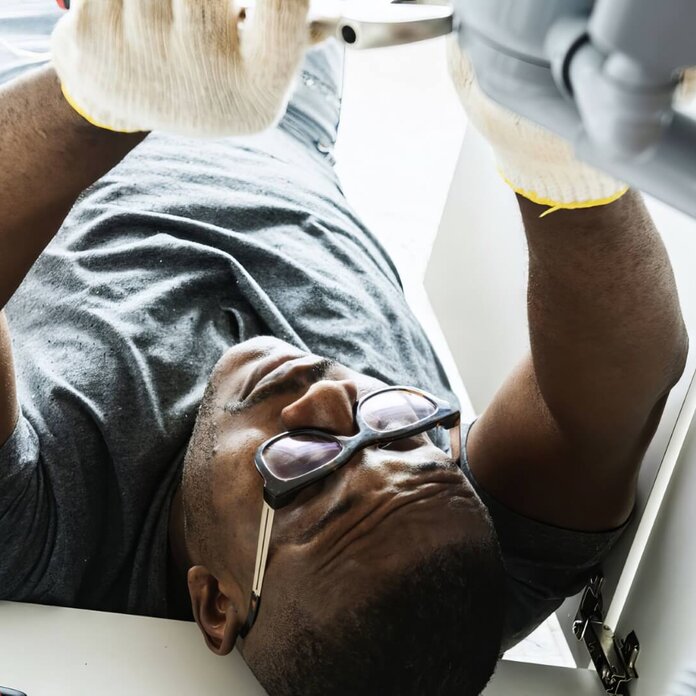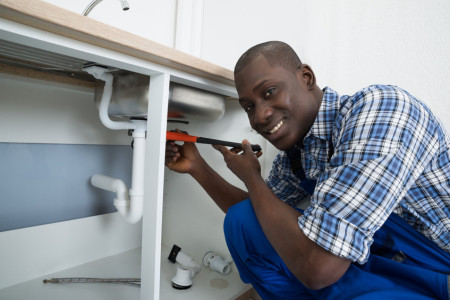Emergency Plumbing Tips: Steps to Take Until Assistance Arrives
Emergency Plumbing Tips: Steps to Take Until Assistance Arrives
Blog Article
What're your opinions about Plumbing Emergencies: Tips on What To Do Before?

Plumbing emergencies can strike at any time, causing anxiety and prospective damages to your home. Whether it's a ruptured pipe, a clogged up drain, or a leaking tap, recognizing just how to handle the situation until an expert plumbing professional gets here can conserve you from additional issues. This post gives crucial emergency situation pipes ideas to assist you alleviate damages and regain control during a pipes dilemma.
Turn Off the Water Supply
The primary step in any kind of plumbing emergency is to turn off the water. For local problems, such as a leaking faucet or commode, switch off the shutoff near the fixture. In the case of a significant leak or burst pipeline, situate your home's primary water shut-off valve and turn it off immediately. Recognizing the place of these valves beforehand can conserve important time throughout an emergency.
Address Tiny Leaks with Temporary Solutions
Tiny leaks can promptly come to be considerable problems if left uncontrolled. Utilize these short-term fixes till expert help gets here:
While these fixes aren't long-term, they can help lessen water loss and damage.
Unclog Drains Pipes Safely
A stopped up drainpipe can be an aggravating and unpleasant problem. Right here's just how to tackle it:
If these methods don't work, prevent utilizing extreme pressure, as it might get worse the obstruction.
Take Care Of Overflowing Toilets
An overruning commode can cause instant turmoil. Below's what you need to do:
Turn off Your Water Heater
In certain emergencies, such as a ruptured pipe, it's a good idea to shut off your water heater. This prevents getting too hot or damage to the device when water stops moving. Shut off the power supply to the hot water heater (electric or gas) and allow it cool down to stay clear of potential risks.
Momentarily Stop a Ruptured Pipe
A ruptured pipe can lead to considerable water damage in mins. To mitigate the problem:
Call a specialist plumbing technician instantly to resolve the issue completely.
Handle Frozen Water Lines Carefully
In chillier environments, frozen pipes are a typical emergency situation. If you believe a frozen pipeline:
Prevent Further Damage
Taking quick action to minimize damage can save you time and money in the long run. Here's how:
. Have an Emergency Situation Plumbing Package
Prepare a basic pipes emergency kit to take care of minor issues properly. Your kit ought to include:
Having these tools accessible can make a substantial distinction in your capability to manage emergency situations.
Know When to Call a Specialist.
While quick fixes can assist momentarily, specific plumbing concerns need immediate specialist interest. Call a plumbing technician if:.
Promptly speaking to a professional makes certain the problem is resolved appropriately and avoids more complications.
Verdict.
Plumbing emergency situations can be overwhelming, yet with the best expertise and tools, you can take care of the situation properly until aid arrives. By shutting off the water, addressing tiny leaks, and making use of short-term solutions, you can lessen damage and maintain your home safe. Remember, these pointers are short-term services; constantly consult an accredited plumber to deal with the origin of the problem. Preparation and fast reasoning are your best allies in any type of pipes emergency situation.
Expert Tips for Emergency Plumbing Repairs
Plumbing emergencies can be incredibly stressful and inconvenient. Whether it’s a burst pipe, a clogged drain, or a leaky faucet, these common plumbing emergencies need immediate attention to prevent further damage to your home. But before you panic, it’s important to understand the basics of plumbing repairs and the steps you can take to address these emergencies. In this article, we will share some expert tips to help you navigate through these situations and minimize potential water damage.
Identifying Common Plumbing Emergencies
Leaky pipes and faucets Clogged drains and toilets Burst pipes Low water pressure Water heater problems Essential Tools for Plumbing Repairs
Plunger: Useful for unclogging toilets and drains Adjustable wrench: Needed for tightening or loosening nuts and bolts Pipe wrench: Ideal for gripping and turning pipes Tape measure: Necessary for accurate pipe measurements Plumber’s tape: Helps create watertight seals Understanding Emergency Plumbing Services
Emergency plumbing services are designed to provide immediate assistance for unexpected plumbing issues that can cause significant damage to your home, business, or health. These services are typically available 24/7 and are staffed by experienced plumbers who can quickly diagnose and repair a wide range of plumbing problems.
When a plumbing emergency strikes, time is of the essence. Whether it’s a burst pipe flooding your basement or a gas leak posing a serious risk, emergency plumbing services ensure that help is just a phone call away. These professionals are equipped with the tools and expertise to handle any situation, minimizing damage and restoring your plumbing system to proper working order.
What Constitutes a Plumbing Emergency?
Burst pipes or water supply lines: These can cause extensive water damage and need immediate repair to prevent flooding. Gas leaks or suspected gas leaks: Gas leaks are extremely dangerous and require prompt attention to avoid potential explosions or health hazards. Sewer backups or overflows: These can lead to unsanitary conditions and significant property damage. Clogged drains or toilets causing water to overflow: Overflowing water can damage floors, walls, and other structures. Leaks or water damage causing structural damage: Persistent leaks can weaken the structural integrity of your home or business. No hot water or heating: A lack of hot water can be more than an inconvenience, especially in colder months. Common Causes of Plumbing Emergencies
Aging or corroded pipes: Over time, pipes can deteriorate, leading to leaks or bursts. Improperly installed or maintained plumbing fixtures: Faulty installations or lack of maintenance can result in unexpected failures. Tree roots or other debris infiltrating your sewer line: Roots can grow into pipes, causing blockages and backups. Frozen pipes or water supply lines: In colder climates, pipes can freeze and burst, leading to significant water damage. High water pressure or sudden changes in water pressure: Excessive pressure can strain pipes and fixtures, causing them to fail. Natural disasters such as floods or earthquakes: These events can disrupt your plumbing system and cause severe damage. Steps to Minimize Water Damage
Locate the water shut-off valve: Knowing where the valve is can help you quickly cut off the water supply to the affected area. Turn off the water heater: If there’s a risk of water coming into contact with the heating element, make sure to turn off the water heater to avoid potential accidents. Open faucets and drain pipes: By opening faucets and drain pipes, you can relieve pressure and empty any standing water. Collect and contain water: Use towels, buckets, or bins to collect water and prevent it from spreading to other areas of your home. https://leecountyplumbingandwellservice.com/expert-tips-for-emergency-plumbing-repairs/

Do you enjoy reading up on Expert Tips for Managing a Plumbing Emergency Until Help Arrives? Give a short review below. We would be pleased to know your opinion about this entry. In hopes that you visit us again in the future. Sharing is good. Who knows, you will be helping someone out. I thank you for your readership.
Book 24/7 Report this page